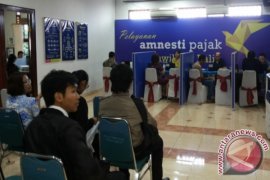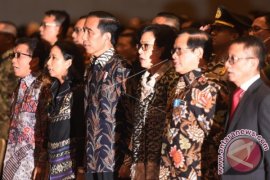Yogyakarta (Antara Bali) - A tax observer said tax amnesty policy has been adopted effectively in 37 other countries both advanced and developing economies.
Darusalam, the managing partner of Danny Darussalam Tax Center (DDTC) said 13 of the countries are Argentina, Trinidad and Tobago, Thailand, Honduras, South Korea, Fiji, Pakistan, Gibraltar. Israel, Malaysia, Russia, Brazil and India. The latter five adopted the policy only for offshore voluntary disclosure program.
In the United States, 45 of its 50 states adopted the policy, and Kenya and Greece are considering adopting the policy, he said here on Thursday.
The policy is adopted in capitalist and socialist countries, therefore, the government does not have to doubt the effectiveness of the policy, he said.
"If the policy would have bad impact on the people and terrorize the tax payers, it is unlikely that the governments and the parliaments of those countries have agreed to adopt the policy," he said in a question and answer ceremony to promote the tax amnesty policy.
He said Indonesia needs only to learn from countries already implemented the program with success and see how their people reacted to the policy.
There are always pros and cons whenever a policy is adopted especially in the case of tax amnesty as it is not the best policy, he said, adding it is only the second best.
Darussalam said legal suit was filed in Germany with that countrys Constitutional Court in 1990 by a group opposing tax amnesty policy .
The group, filing the legal suit, cited injustice or discrimination against obedient tax payers as the motive, but the German Constitutional Court decided that tax amnesty was not against the constitution of that country as it was intended to make disobedient tax payers obedient.
"The lesson from the tax amnesty case in Germany is that the argument of injustice is irrelevant as tax amnesty would expand tax base and increase tax revenues . The fund raised from tax amnesty would be used to achieve the constitutional goals," he said.
Economic and Business Dean of the Gajahmada University Wihana Kirana Jaya said the government has taken the right policy with tax amnesty amid uncertainty and volatility besetting the countrys economy .
The policy is in line with the Nawacita principle of the government which attaches greater importance to self reliance in fund to finance development instead of relying too much on loan, Wihana said .
"Indeed , this is the right moment to adopt the policy amid the unfavorable condition globally and nationally," he added.
The tax amnesty policy is expected to trigger repatriation of thousands of trillions of rupiahs of funds parked by many rich Indonesians abroad including those seeking to escape tax.
The government hopes to gain from redemption and tax from the declaration of assets .
In addition the cash strapped government hopes to use the funds to finance its massive infrastructure projects.(WDY)




